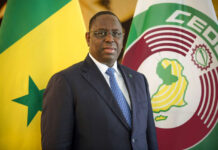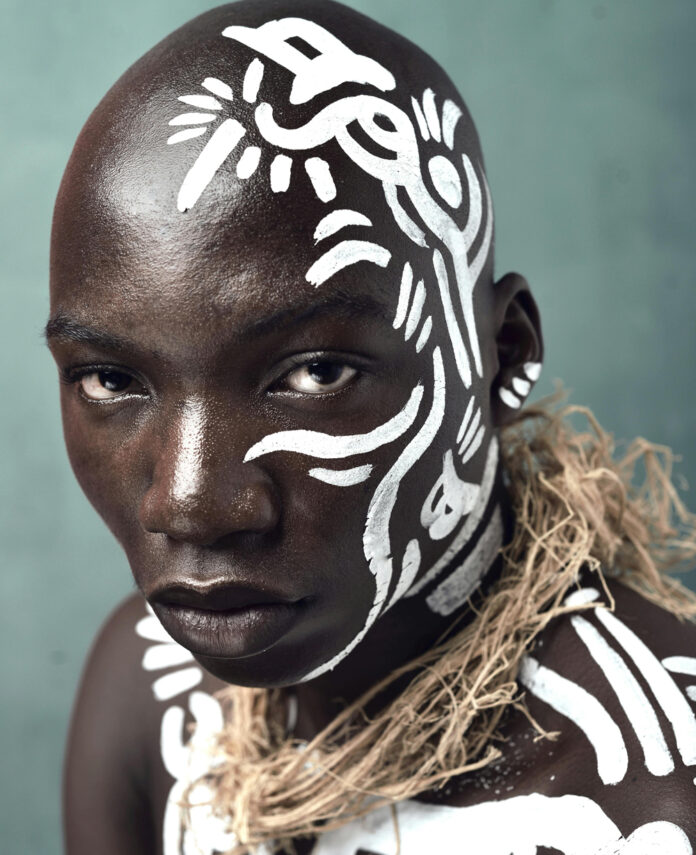Introduction
Africa, often celebrated for its rich tapestry of cultures, languages, and traditions, is paradoxically also a continent where deep divisions persist along ethnic and tribal lines. The phenomenon of tribalism—where individuals identify more strongly with their ethnic group than with the broader national or continental identity—remains a significant barrier to unity and development. This article explores the roots of tribalism in Africa, examines why individuals with nearly identical physical features can perceive each other as fundamentally different, and considers pathways toward transcending these divisions.
Understanding Tribalism: Beyond Physical Attributes
Tribalism Defined
Tribalism in Africa refers to a strong loyalty to one’s ethnic group, often at the expense of broader social cohesion or national unity. It is not merely about shared ancestry or physical similarity, but about cultural, linguistic, and historical bonds that define group identity511. These identities are deeply ingrained, shaped by centuries of tradition and, more recently, by the disruptive legacies of colonialism48.
Physical Similarity, Social Difference
Despite the striking physical similarities among many African groups—skin tone, facial features, and other phenotypic traits—tribalism persists because identity is constructed on factors far deeper than appearance. As anthropological research has shown, physical characteristics are poor markers of meaningful social divisions; instead, cultural, linguistic, and historical narratives play a far greater role in shaping group identity34.
Historical Roots: Colonialism and the Invention of “Tribe”
Colonial Manipulation of Identity
The concept of the “tribe” as it is commonly understood today was largely a colonial invention. European colonial powers, seeking to administer vast territories with minimal resources, classified Africa’s diverse peoples into rigid “tribes,” often ignoring the fluid and overlapping identities that existed prior to colonization48. These artificial boundaries and classifications sowed the seeds of division, as colonial authorities rewarded ethnic groups that collaborated with them and pitted others against each other for administrative convenience84.
Post-Colonial Legacy
After independence, many African states inherited these colonial structures. Efforts to build national unity often clashed with entrenched tribal loyalties, leading to a situation where the state was seen as a prize to be captured by one’s own group, rather than a common good29. The result has been persistent ethnic competition for political power and resources, sometimes erupting into violence105.
The Psychological and Social Dynamics of Tribalism
Identity, Belonging, and Security
For many Africans, tribal identity offers a sense of belonging, security, and continuity. In societies where state institutions are weak or corrupt, the tribe becomes the primary unit of trust and solidarity513. This is not unique to Africa; throughout human history, people have sought safety in groups defined by kinship, language, or culture11.
The Role of Grievance and Competition
Tribal divisions are often exacerbated by historical grievances—real or perceived injustices that are passed down through generations13. Competition over scarce resources, political representation, and economic opportunities further deepens these divides. Politicians and elites frequently exploit tribal loyalties to mobilize support, secure votes, and maintain power, reinforcing the cycle of division912.
Why Do Africans With Identical Physical Attributes See Each Other as Different?
The Power of Cultural Narratives
Physical similarity does not guarantee social unity. Cultural narratives—stories about origins, heroes, enemies, and shared struggles—shape how groups see themselves and others413. These narratives are often reinforced through language, rituals, and collective memory, creating strong boundaries between groups that may be indistinguishable to outsiders.
Language as a Marker of Difference
Language is a particularly powerful marker of identity in Africa, where thousands of distinct languages and dialects are spoken. Even when physical differences are negligible, linguistic differences can serve as a clear boundary between “us” and “them”14.
Colonial and Post-Colonial Politics
The manipulation of ethnic identity for political gain continues to this day. In many countries, political parties and government positions are allocated along ethnic lines, making tribal identity a matter of material consequence1210. This incentivizes individuals to prioritize tribal loyalty over broader solidarity, even when they share physical traits with members of other groups.
The Consequences of Tribalism
Obstacles to Nation-Building
Tribalism has been a major impediment to nation-building in Africa. It undermines efforts to create inclusive national identities, fosters distrust among citizens, and fuels cycles of violence and retribution115. The Rwandan genocide, the post-election violence in Kenya, and ongoing conflicts in countries like South Sudan and Nigeria are stark reminders of the destructive potential of tribal divisions105.
Economic and Political Costs
Tribalism distorts the allocation of resources and opportunities, as leaders favor their own groups and marginalize others1213. This not only breeds resentment and instability but also hampers economic development by preventing the most qualified individuals from contributing to the national good11.
Moving Beyond Tribalism: Pathways to Unity
Reclaiming Pan-Africanism
Pan-Africanism—the idea that Africans share a common destiny and should unite across ethnic and national lines—offers a powerful alternative to tribalism57. Leaders like Kwame Nkrumah and Julius Nyerere advocated for transcending tribal loyalties in favor of national and continental solidarity25. While progress has been uneven, the ideal of African unity remains a potent force for change.
Building Inclusive Institutions
The key to overcoming tribalism lies in building inclusive, accountable institutions that serve all citizens equally. This includes fair distribution of resources, transparent governance, and the promotion of policies that reward merit rather than ethnic affiliation1013. Where institutions are strong and inclusive, tribal divisions tend to recede in importance.
Celebrating Diversity Without Division
Tribal identities need not be a source of division. They can instead be celebrated as part of Africa’s rich cultural heritage, providing a sense of pride and belonging without undermining national unity13. The challenge is to transform tribalism from a political weapon into a source of cultural enrichment.
Conclusion
The persistence of tribalism in Africa, despite the shared physical attributes of its people, is a testament to the power of cultural, linguistic, and historical narratives in shaping identity. While colonialism played a significant role in entrenching these divisions, the continued manipulation of tribal loyalties by political elites has perpetuated the problem. Overcoming tribalism will require a concerted effort to build inclusive institutions, promote national and continental solidarity, and reframe tribal identity as a source of cultural pride rather than political division. Only then can Africans look at one another—not as strangers divided by artificial boundaries, but as fellow travelers on a shared journey toward unity and progress5137.
By George Prince
Citations:
- https://www.culturalsurvival.org/publications/cultural-survival-quarterly/nation-tribe-and-ethnic-group-africa
- https://www.brookings.edu/articles/ethnicity-an-african-predicament/
- https://www.britannica.com/topic/race-human/Race-and-the-reality-of-human-physical-variation
- https://mavmatrix.uta.edu/cgi/viewcontent.cgi?article=1508&context=mcnairscholars
- https://www.africamattersinitiative.com/post/tribalism-a-deterrent-to-african-unity
- https://www.hks.harvard.edu/publications/how-tribalism-stunts-african-democracy
- https://panafricanreview.com/is-african-unity-possible-when-africans-are-divided-on-tribal-grounds/
- http://exploringafrica.matrix.msu.edu/apic-tribalism-essay/
- https://www.bbc.co.uk/news/world-africa-20465752
- https://politicstoday.org/african-politics-tribal-violence-and-socio-economic-rivalry-in-africa/
- https://files.eric.ed.gov/fulltext/EJ1095249.pdf
- https://www.afriklens.com/the-role-of-tribalism-in-african-politics/
- https://www.tapmagonline.com/tap/tribalism-africas-final-frontier
- https://www.jstor.org/stable/178957
- https://whileinafrica.com/meet-the-tribes-in-africa/
- https://www.reddit.com/r/AskAnAfrican/comments/1dpc5e9/can_africans_really_tell_other_africans/
- https://pmc.ncbi.nlm.nih.gov/articles/PMC2947357/
- https://www.bbc.co.uk/news/science-environment-51914782
- https://www.learningforjustice.org/magazine/spring-2001/the-trouble-with-tribe
- https://disgruntledharadrim.com/2013/01/18/postcolonial-fantasy-and-africa-against-the-word-tribe/
- https://www.toughconvos.com/post/what-is-the-difference-between-black-african-and-black-caribbean
- https://mycouture.africa/culture/being-african-in-the-diaspora-exploring-identity-belonging-and-perceptions/
- https://oxfordre.com/africanhistory/display/10.1093/acrefore/9780190277734.001.0001/acrefore-9780190277734-e-32?d=%2F10.1093%2Facrefore%2F9780190277734.001.0001%2Facrefore-9780190277734-e-32&p=emailA8zQGw2uA1Vo2
- https://www.africanleadershipmagazine.co.uk/ethnic-and-tribal-dynamics-in-african-politics-effects-on-national-harmony/
- https://www.gisreportsonline.com/r/africa-ethnic-divisions/












